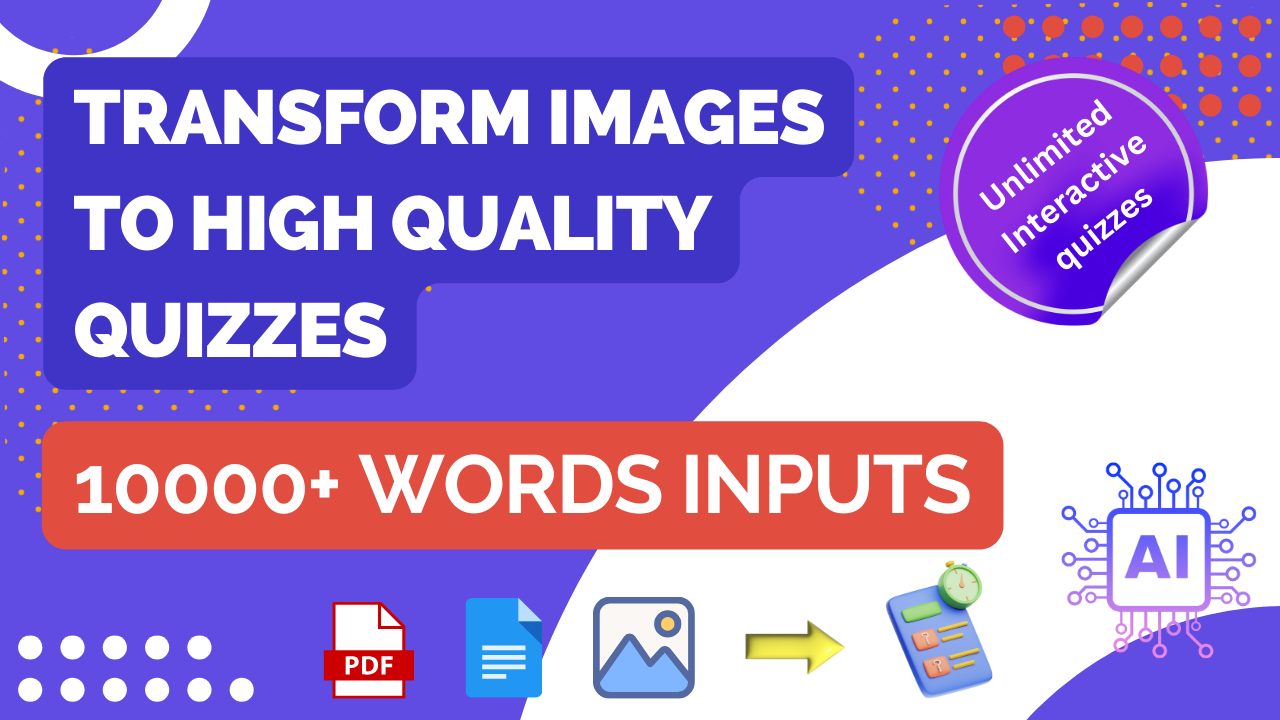In the ever-evolving landscape of education, the demand for efficient and effective assessment tools has never been higher. Educators are constantly seeking ways to streamline the assessment process while maintaining high standards of quality and relevance. Enter the AI exam maker—an innovative tool that simplifies the test creation process for teachers. This article explores how AI exam makers work, their advantages, applications in various educational settings, and the transformative impact they have on both teaching and learning.
Understanding AI Exam Makers
AI exam makers are cutting-edge software tools designed to assist educators in creating assessments with ease and efficiency. Using algorithms that draw from vast databases of questions, these tools can generate tests tailored to specific topics, difficulty levels, and learning objectives. Educators can input parameters such as subject matter, question types, and desired outcomes, allowing the AI to produce a custom exam. By utilizing natural language processing and machine learning, AI exam makers can create questions that fit the context, ensuring that tests are relevant and aligned with curriculum standards.
Streamlining the Test Creation Process
One of the primary advantages of AI exam makers is their ability to dramatically streamline the test creation process. Traditional test writing can be time-consuming and labor-intensive, often requiring educators to sift through resources, create questions, and format exams manually. With AI exam makers, educators can save invaluable time by quickly generating tests in a matter of minutes. This efficiency allows teachers to focus more on instruction, engagement, and personalized learning experiences rather than being bogged down by administrative tasks. Ultimately, the time saved can contribute to improved learning outcomes and student success.
Enhancing Question Diversity and Quality
AI exam makers excel in producing a wide variety of question types, which enhances the overall quality of assessments. They can create multiple-choice, fill-in-the-blank, true/false, and open-ended questions, among others, all tailored to the specific needs of educators. This diversity allows for comprehensive assessments that cater to various learning styles and cognitive competencies. Furthermore, AI-generated questions can be designed to assess not just rote memorization but also critical thinking and problem-solving skills. By incorporating higher-order thinking questions, educators can ensure that assessments are not only fair but also challenging and stimulating.
Customization and Alignment with Learning Objectives
Another significant benefit of Ai Quiz Creator is their ability to customize assessments to align with specific learning objectives. Educators can define parameters such as topic coverage, difficulty levels, and even the number of questions needed to meet classroom requirements. This level of customization ensures that exams are directly relevant to the material that has been taught, providing a more accurate evaluation of student understanding. Additionally, AI systems can analyze curriculum standards to align generated questions with educational benchmarks, making the exam creation process more systematic and focused.
The Role of Feedback and Analytics
AI exam makers often come equipped with robust analytics tools that provide educators with insights into student performance. Once a test is administered, these tools can analyze the results to identify patterns and trends in student understanding. This feedback can help educators assess the effectiveness of their teaching methods and make necessary adjustments. For instance, if a significant number of students struggle with a particular question or concept, teachers can revisit that topic in class or implement targeted interventions. Such data-driven insights empower educators to continually refine their approach to teaching and assessment.

Fostering Collaboration and Improvement
As AI exam makers become increasingly integrated into educational environments, they promote collaboration among educators. Teachers can share exams and questions with colleagues, facilitating an exchange of resources and best practices. By working together to develop high-quality assessments, educators can enhance the overall learning experience for their students. Furthermore, AI tools can incorporate feedback from educators and students alike, continuously improving the quality of question generation. This community-oriented approach fosters a culture of collaboration and professional development among educators.
The Future of AI in Education
As technology continues to advance, the future of AI in education holds exciting possibilities. AI exam makers represent just one facet of how artificial intelligence can enhance the teaching and learning experience. Future developments may include more sophisticated algorithms that understand individual student learning profiles, providing even more personalized assessments. Additionally, as AI becomes more integrated with other educational technologies, educators may find new and innovative ways to use these tools to enhance classroom experiences. The potential for AI to transform education is immense, paving the way for a more efficient, effective, and engaging learning environment for all.




Comments